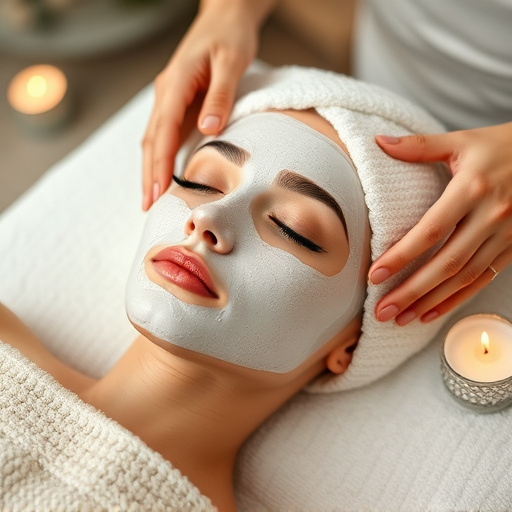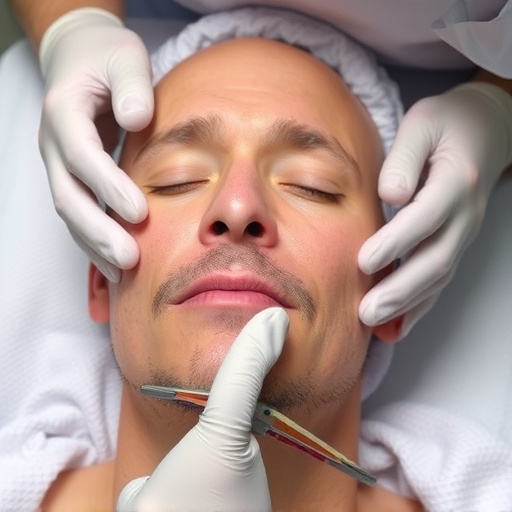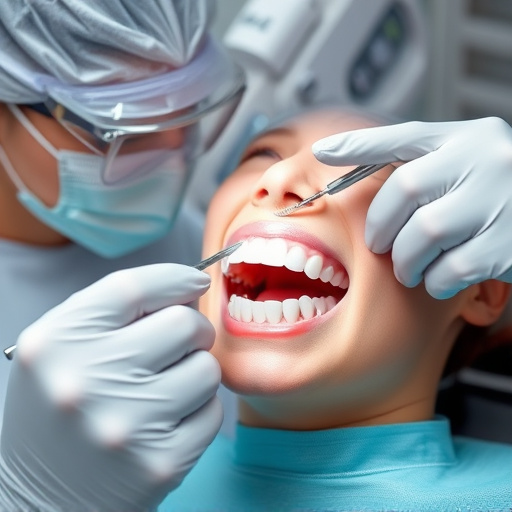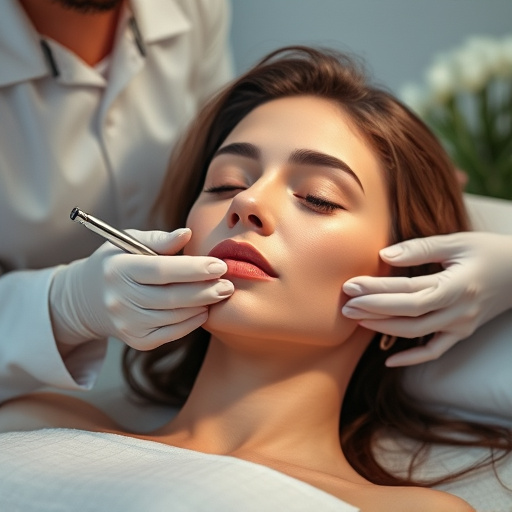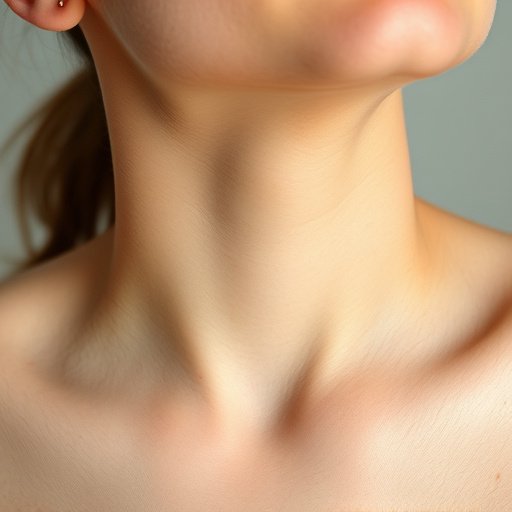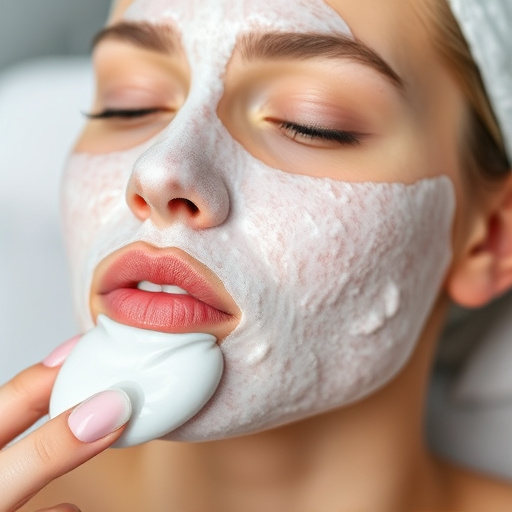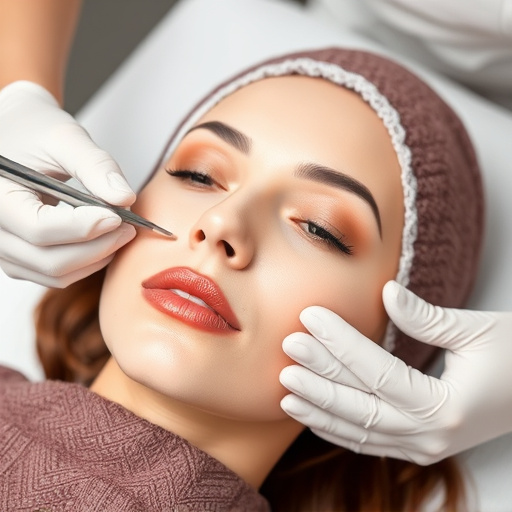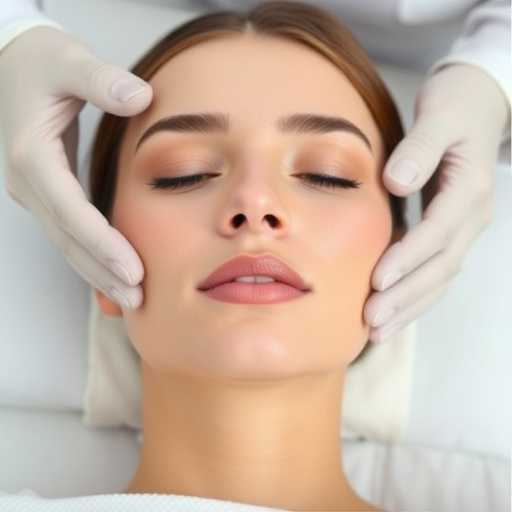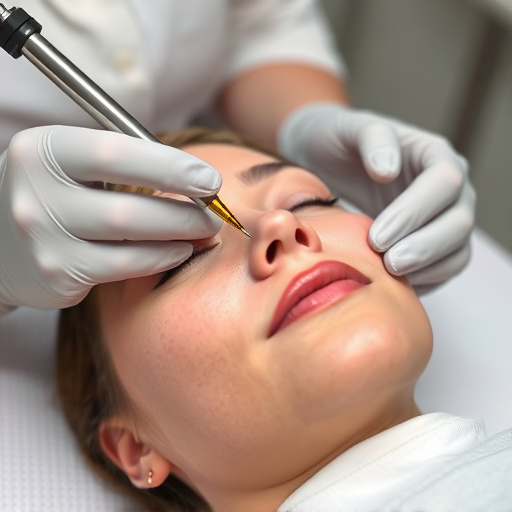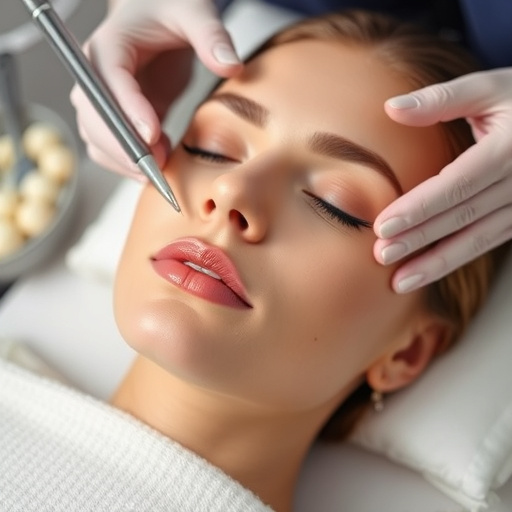Hormonal changes drive teenage acne, with androgens increasing oil production and causing clogged pores. Skincare specialists recommend targeted treatments including facial procedures and body contouring techniques for a comprehensive approach to addressing root causes. Dietary choices impact skin health significantly, with high-carb foods triggering inflammation and hormonal imbalances. Environmental factors like pollution and temperature shifts also contribute to acne, while balanced lifestyle choices and suitable skincare routines are crucial for effective teenage acne treatment.
Teenage acne, a common concern for adolescents, is caused by a complex interplay of factors. This article delves into the primary drivers behind breakouts requiring teenage acne treatment. We explore how hormonal changes, dietary choices, and environmental triggers significantly impact skin health. Understanding these elements is key to effective management and clear, healthy skin. By addressing these causes, teens can navigate their skincare journey with informed steps towards a clearer complexion.
- Hormonal Changes: The Primary Driver of Teen Acne
- Dietary Factors and Their Impact on Skin Health
- Environmental Triggers and Their Role in Breakouts
Hormonal Changes: The Primary Driver of Teen Acne
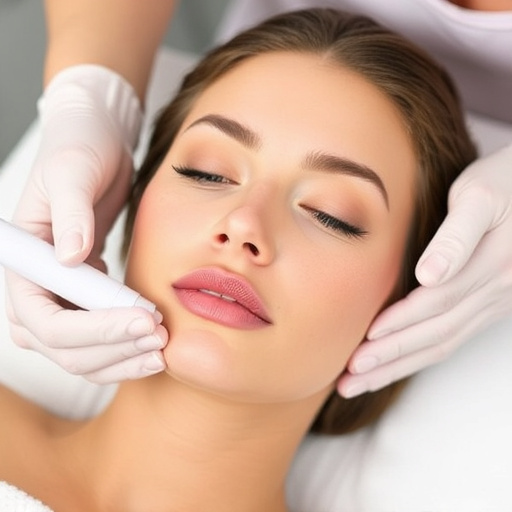
Hormonal changes are the primary driver of teenage acne. During puberty, the body experiences a surge in hormones, particularly androgens, which stimulate the oil-producing glands in the skin. This increased oil production, combined with dead skin cells and clogged pores, can lead to breakouts. Additionally, these hormonal fluctuations can cause inflammation, further exacerbating the condition. Many professional skincare specialists recommend tailored teenage acne treatment plans that address these root causes, often involving gentle yet effective facial treatments to unclog pores and soothe irritated skin.
While hormonal changes are a significant factor, other elements such as diet, stress, and environmental factors also play a role in the development of acne. However, for many teens, managing these external influences is complemented by adopting a comprehensive approach to skincare that may include specialized body contouring techniques alongside professional skincare guidance to achieve clearer, healthier skin.
Dietary Factors and Their Impact on Skin Health
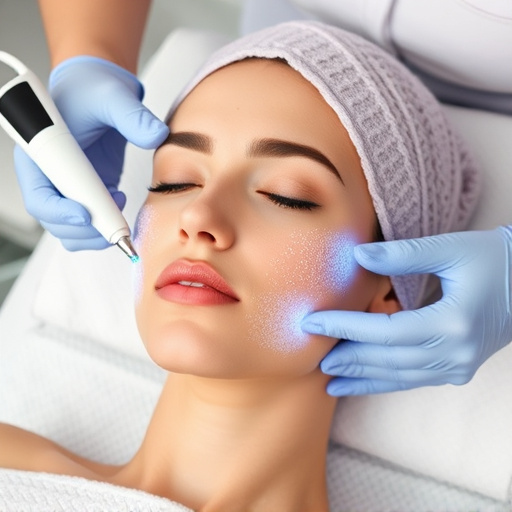
Dietary factors play a significant role in maintaining optimal skin health, which is especially pertinent when addressing teenage acne treatment. Foods rich in carbohydrates and simple sugars can trigger inflammation and hormonal imbalances, often contributing to breakouts. These foods cause spikes in insulin levels, leading to increased sebum production, a key factor in acne formation. Additionally, certain dietary additives and preservatives found in processed foods may irritate the skin, exacerbating existing acne conditions.
On the other hand, a diet rich in whole grains, lean proteins, healthy fats, and a variety of fruits and vegetables can aid in teenage acne treatment. These foods are packed with antioxidants, vitamins, and minerals that support skin health and immune function. For instance, zinc is an essential mineral that plays a crucial role in maintaining skin integrity and regulating inflammation, making it a valuable component in many effective acne treatments.
Environmental Triggers and Their Role in Breakouts
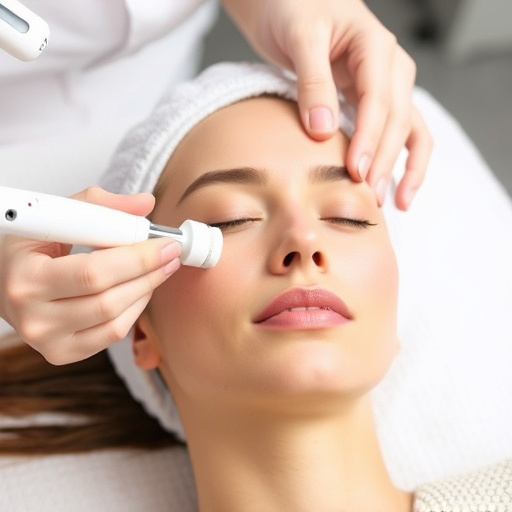
Environmental triggers play a significant role in causing breakouts that may require teenage acne treatment. Factors like pollution, excessive heat, and cold can all contribute to skin inflammation and oil production. In urban areas, exposure to pollutants such as car exhaust and industrial chemicals can clog pores and irritate the skin, leading to blemishes. Similarly, dramatic changes in temperature, whether from spending time in air-conditioned environments or being outdoors in hot weather, can cause the skin to produce more sebum, a natural oil that can exacerbate acne.
Beyond these environmental factors, certain lifestyle choices can also trigger breakouts. Stress, for instance, is a well-documented contributor to acne flare-ups. Hormonal changes during puberty, when the body is undergoing rapid development, can further complicate matters. Additionally, diet and skincare routines can influence skin health. Consuming foods high in sugar or unhealthy fats, as well as using certain cosmetics or skincare products that aren’t suitable for your skin type, may exacerbate existing acne conditions, underscoring the importance of a balanced lifestyle and tailored teenage acne treatment.
Teenage acne is a complex issue driven by a combination of hormonal changes, dietary factors, and environmental triggers. Understanding these causes is essential for implementing effective strategies in teenage acne treatment. By addressing these underlying factors, teens can achieve clearer skin and build healthy habits that will benefit their skin long-term. Remember, early intervention and consistent care are key to managing and preventing severe breakouts.

